Mozambique: State to finance 13 audiovisual, cinema productions
Meet the human statues turning unemployment into art on Maputo’s streets
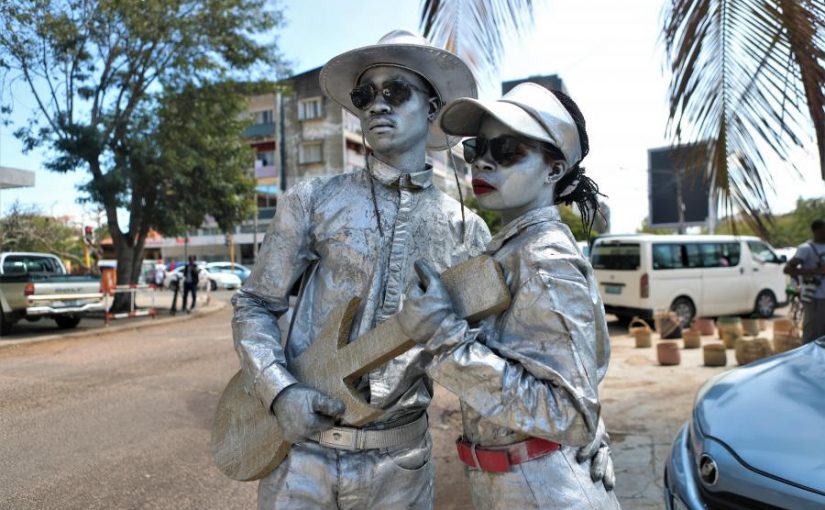
All photos: Luisa Nhantumbo / Lusa
Leonardo Mendes, a 22-year-old student, paints the ‘human statues’ on display at traffic lights in the Mozambican capital. They brighten the day of drivers and pedestrians, and help him avoid unemployment.
“This changes people’s day,” says Leonardo Mendes, founder of the six-person human statue group Sem Limites X (“Without Limits X”), shortly after painting a couple of ‘statues’ silver at the traffic lights on Mao Tse Tung Avenue, in central Maputo.
The young man wants to improve Mozambicans’ days through art, and collects coins thrown into baskets beside the statues by drivers and pedestrians – which help cover his university and household expenses.
“I also try to support my studies and make a small contribution at home with the art I do. There are two of us at home, (…) and the little I make on the street helps,” he notes, mentioning that he earns almost 2,000 meticais (€26) per day, as also does his younger brother, who does the same thing.
By 07:00 a.m. the ‘human statues’ take to the avenues of Maputo, maintaining a stationary pose on an improvised box, with a basket close by for coins.
The young people remain motionless for about six hours, until the lunch break. Some are all gold, others silver, green, blue or yellow.
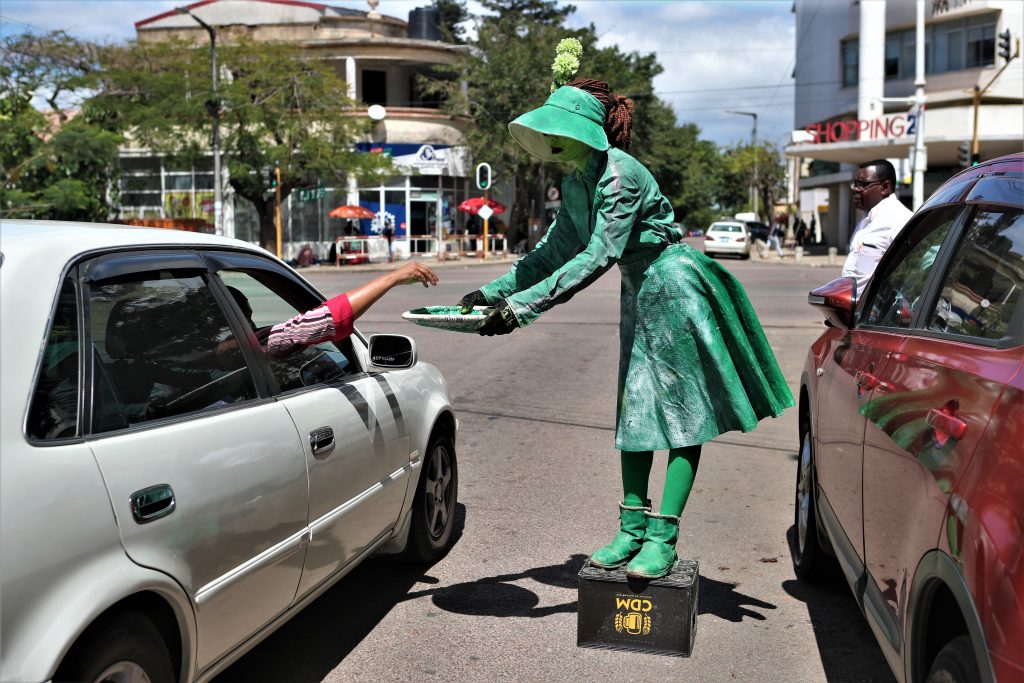
“My idea, as the group’s representative, is to try to innovate the art and the human statue so as not to bore people and not let this die out, to take it further,” adds Leonardo.
On the other side of the city stands 25-year-old Bernardo Miguel, motionless on Salvador Allende Avenue, one of his several ‘spots’, with his basket extended and his phone number written on the golden beer box he stands on.
With no academic training, Bernardo places his faith in art while thinking of alternative sources of income to achieve his dream of owning his own home.
“I’m thinking of doing business, not stopping at this statue thing, no. (…) I’ll take clothes and sell them in the markets (…). Sitting at home is also not a solution,” says Bernardo Miguel tells Lusa, painted in silver and holding a cane, while changing poses.
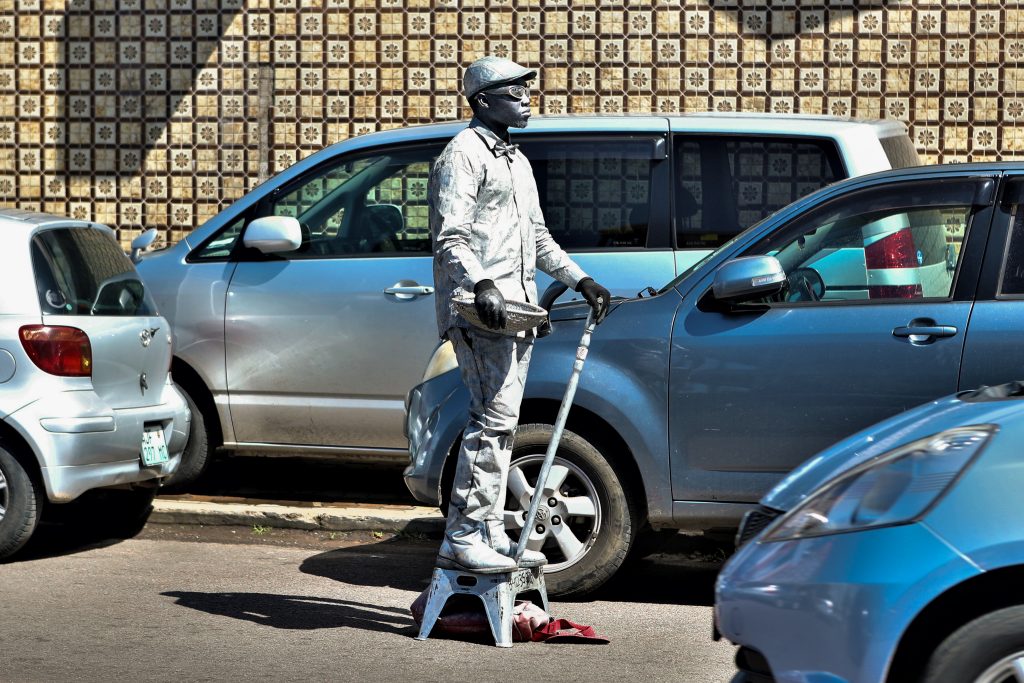
Bernardo manages to earn at least 700 meticais (€9.24) a day. He considers the activity dangerous, but he “prefers to take the risk.”
“Someone may stop to take my number for an event or something like that, parties,” says the young man, who started the statue posing during the demonstrations that followed the October 2024 elections.
In this art, creativity is what matters – a point not lost on Alice, 19 years old, who occupies the same avenue as Bernardo but at another traffic light, distinguishing herself with the colour green.
From dancer to comedian, in her search for a job, Alice discovered the ‘human statues’ genre after an invitation from a friend. Today, while getting ready behind a building, she dreams of taking the business abroad.
“I left and didn’t like it. Of all the jobs, this is the one I liked most,” says Alice Mussa, while extending the basket to a driver who rolled down her car window to donate.
She tells Lusa she is saving money to renew her passport and emigrate to South Africa, to perform the same activity there.
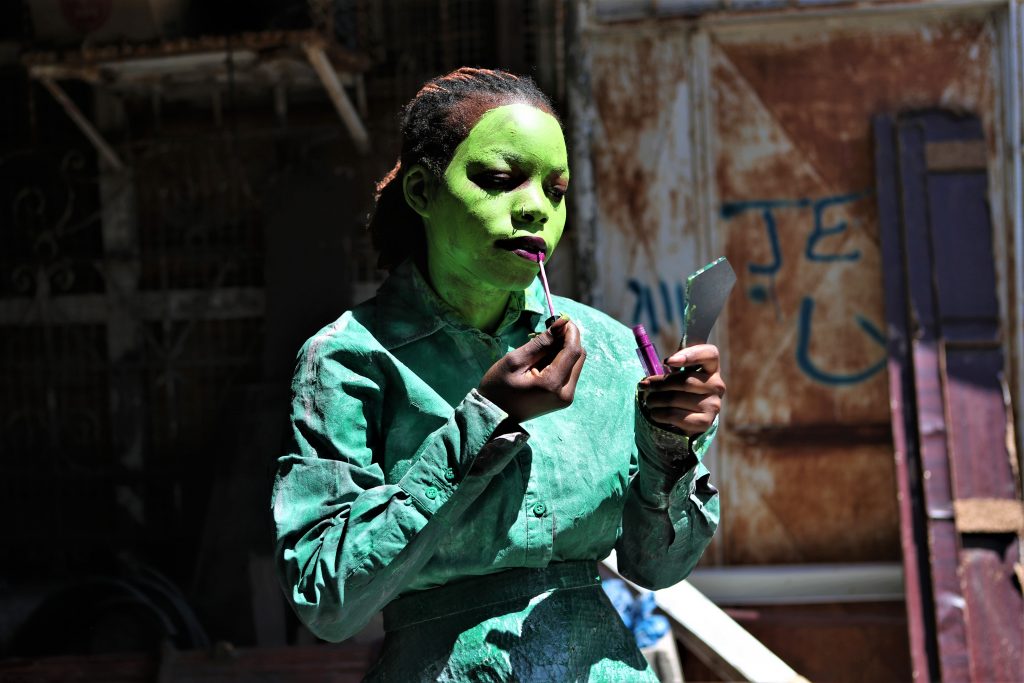
“My dream is to have my own job and travel to foreign countries (…). For me, it will mean something very big. Like, these days, you see, when I’m standing here, someone comes to see me and says, ‘Hi, statue lady, hi, human statue’ – I’m happy too,” says Alice, who says she earns about 1,000 meticais (€13.2) a day.
With part of a broken mirror, a sponge and lipstick, Alice transforms herself every day into a green statue and displays herself on the streets of Maputo.
“I chose the colour green because I hadn’t seen it used before. I decided to have a different colour, be a green woman,” she says, adding that she has never had skin problems from the paint she applies.
The human statues are still a novelty in Maputo, an initiative seen as an alternative to unemployment by Lucas Zimba, 36 years old, who dropped 100 meticais (€1.32) into her basket.
“I gave money because I appreciate the initiative. (…) So their initiative will encourage others who have no idea what to do to earn their bread,” says the man, who had to rush away from the interview to attend to a customer at his improvised stall selling handicraft pieces, which has supported his family for four years – and “avoid stealing mobile phones on the streets”.
The ‘statues’ acknowledge the insecurity of the activity, but remain still every day at Maputo’s traffic lights, only lapsing on days of intense sun or rain, when they fear they might collapse and injure themselves.
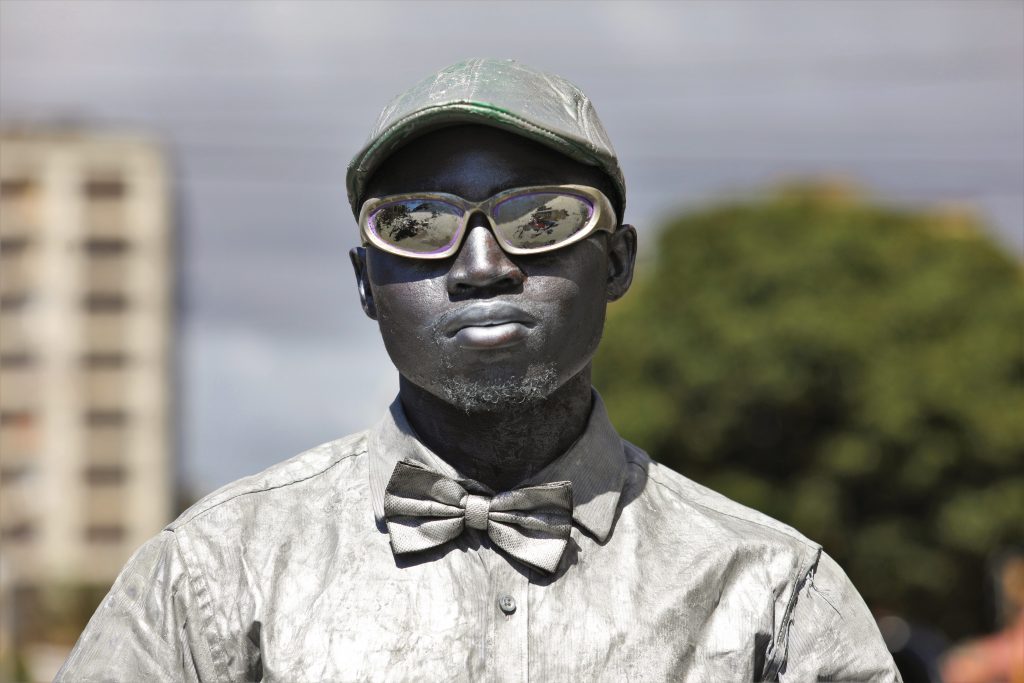












Leave a Reply
Be the First to Comment!
You must be logged in to post a comment.
You must be logged in to post a comment.